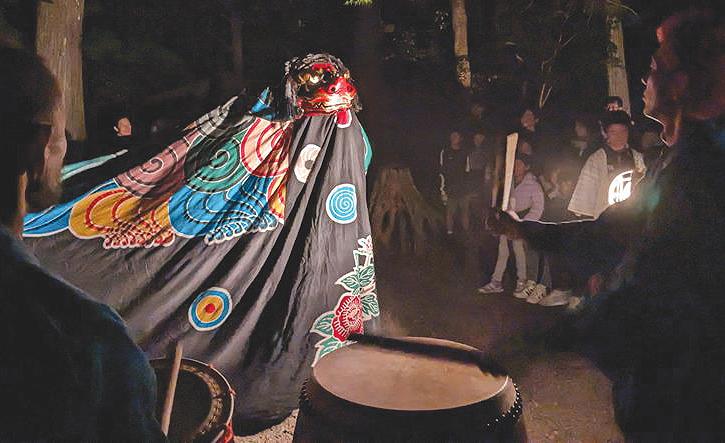- The Shishi-mai lion dance as performed by a member of the Oku team.
Tours of a Lifetime
Oku Japan Focuses on Empowering Communities Through Sustainable Initiatives and Hands-On Support
From trail maintenance and English lessons to cultural preservation, Oku Japan invests as much in the communities in which it operates as it does the trips it runs there
Oku Japan, a leading Kyoto-based tour operator specializing in sustainable and culturally immersive travel experiences, makes it a priority to support the local communities it operates in as much as the travelers who partake in one of the company’s many guided and self-guided walking tours. As part of that, Oku has implemented a variety of initiatives aimed at supporting residents and local economies and preserving local cultures.
One of its key initiatives, of course, is its deep commitment to working with locally owned accommodations, restaurants, and activity providers. By partnering with local businesses, Oku ensures that a significant portion of travelers’ spending directly benefits the communities they visit, helping to support livelihoods there and preserve traditional ways of life. However, beyond the support that comes by way of its tours, Oku routinely works with the people that make up these businesses to provide indirect support designed to assist in their long-term success. So far this year, this has included various community sessions organized by Oku to help business owners feel more confident in dealing with English speakers, including reviewing common phrases, as well as cultural differences and norms, and ways to navigate them.
The Oku team also assists every year with maintenance activities along the Nakasendo Trail, which is minimally funded and quickly becomes an issue if it isn’t maintained. Gathering volunteers from its Kyoto office and Kumano Kodo branch, the Oku team clears overgrown branches, trims back grasses, and cleans signage along the trail. The same applies to controlling the growth of the bamboo in the region, with April bringing with it the start of the growing season. For the first time this year, at the request of the community, the Oku team is assisting the village of Tsumago in trimming back and removing bamboo to help maintain the landscape, as well as assist in harvesting the shoots, which are then given to the community to use in a variety of ways, from textiles to cooking.
On the cultural side, Oku Japan has also stepped in to assist with the preservation of long-held traditions, specifically the Shishi-mai lion dance that is part of yearly harvest festivals among communities along the Kumano Kodo. Thanks to its deep ties with the communities here, and particularly in the village of Chikatsuyu where camaraderie and trust has been built up over the years, members of Oku’s branch office have participated in the dance, assisting village elders in keeping the tradition alive.

















